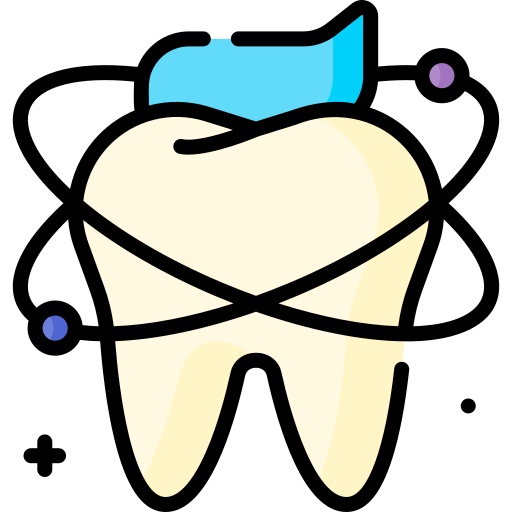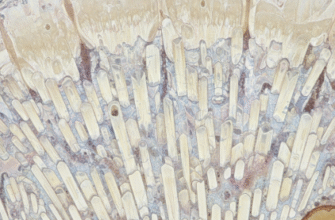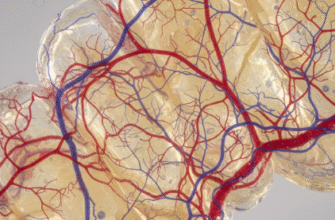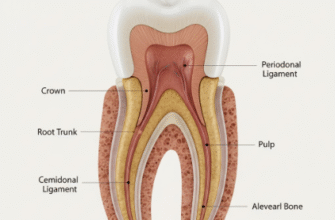That whiff of unpleasantness, the dreaded bad breath. Most of us immediately jump to one conclusion: a trip to the dentist is overdue. We picture plaque, cavities, or maybe even gum disease as the sole culprits behind halitosis. While dental health is undeniably a major player in the freshness of our breath, the idea that all bad breath springs from problems within the mouth is a persistent myth that deserves a closer look. The truth is, the origins of bad breath can be surprisingly diverse, sometimes signaling issues far removed from your pearly whites, and understanding this can be the first step towards truly fresh breath.
The Usual Suspects: When Your Mouth Is Indeed the Source
Let’s not dismiss the obvious entirely. A significant portion of bad breath cases, known medically as halitosis, do indeed have their roots firmly planted in the oral cavity. If you’re slacking on your brushing and flossing routine, bacteria will have a field day. These microscopic critters feast on leftover food particles, particularly proteins, and as they break them down, they release volatile sulfur compounds (VSCs). These VSCs – think hydrogen sulfide (like rotten eggs) and methyl mercaptan (smells like old cabbage) – are the primary odor-causing agents. Imagine a microscopic party in your mouth, and the VSCs are the unwelcome, smelly party favors.
Common Oral Culprits Behind Bad Breath
When your mouth is the source, these are the most frequent offenders:
- Poor Oral Hygiene: This is, without a doubt, the number one reason. Infrequent or improper brushing and flossing allow food debris and bacteria to accumulate, especially between teeth, under the gumline, and on the tongue’s surface. Over time, this forms plaque, a sticky film teeming with bacteria.
- Gum Disease (Gingivitis and Periodontitis): Inflamed gums (gingivitis) or more advanced gum disease (periodontitis) create deeper pockets around the teeth. These pockets are perfect breeding grounds for anaerobic bacteria, which thrive in low-oxygen environments and produce particularly potent VSCs. Bleeding or swollen gums are a significant red flag.
- Tooth Decay (Cavities): Cavities are essentially holes in your teeth where bacteria can hide, multiply, and break down food particles, leading to foul smells. The larger and deeper the cavity, the more potential for odor.
- Dry Mouth (Xerostomia): Saliva is nature’s mouthwash. It plays a crucial role in neutralizing acids produced by bacteria and washing away food particles and dead cells. When saliva flow is reduced – often due to certain medications (antihistamines, decongestants, blood pressure drugs), some health conditions, radiation therapy, or even habitual mouth breathing – bacteria can proliferate unchecked, and breath can suffer significantly.
- Dental Appliances and Restorations: Dentures, bridges, retainers, or braces can trap food particles and bacteria if not cleaned meticulously every day. Ill-fitting restorations can also create nooks and crannies for bacteria to hide.
- Impacted Teeth: Wisdom teeth that are only partially erupted can create flaps of gum tissue where food and bacteria become trapped, leading to an infection called pericoronitis, often accompanied by a bad taste and odor.
Journey Beyond the Teeth: Unmasking Other Odor Origins
So, you’re a champion brusher, a dedicated flosser, your tongue is sparkling clean, and your dentist gives you a clean bill of health, yet that unwelcome aroma stubbornly persists. This is where we need to broaden our investigation. The human body is an intricate, interconnected system, and sometimes, the source of bad breath lies outside the mouth altogether, requiring a different approach to resolve.
The Nose, Sinuses, and Throat Connection
Your upper respiratory system, particularly the nasal passages, sinuses, and throat, can be a significant, and often overlooked, contributor to bad breath. Issues here typically involve mucus, inflammation, and bacterial activity.
- Post-Nasal Drip: If you suffer from allergies, a common cold, or chronic sinus issues, you might experience post-nasal drip. This is when excess mucus produced in your nasal passages drips down the back of your throat. This mucus, rich in proteins, provides an ample food source for bacteria residing on the back of the tongue and in the throat, which then release those familiar odorous VSCs.
- Sinus Infections (Sinusitis): Acute or chronic infections of the sinuses can produce thick, often foul-smelling, mucus and discharge. This infected material can drain into the throat or affect the air exhaled through the nose, directly impacting breath odor.
- Tonsil Stones (Tonsilloliths): Tucked away in the crypts (crevices) of your tonsils, small, hard formations of bacteria, dead cells, mucus, and food debris can accumulate. These are known as tonsil stones or tonsilloliths. They can emit a very strong, distinct, and unpleasant odor, often described as sulfuric. Many people are unaware they even have them until one is dislodged.
- Other Throat Infections: Infections like pharyngitis (sore throat) or tonsillitis can also contribute to temporary bad breath due to the increased bacterial activity and inflammation.
“While your dentist is the first port of call for persistent bad breath, don’t be surprised if they suggest looking elsewhere if your oral health is impeccable. Bad breath isn’t always a sign of poor brushing or flossing; sometimes it’s your body’s way of hinting at something else entirely. Understanding these diverse origins is key to finding a lasting solution for fresher breath and greater confidence.”
What Your Stomach Might Be Telling You (and Your Breath)
Sometimes, the journey of bad breath starts further down, in your digestive system. While generally less common as a primary cause than oral or nasopharyngeal issues, certain digestive conditions or dietary choices can definitely manifest as unpleasant breath odors.
- Certain Foods and Drinks: This is perhaps the most well-known non-oral cause. Garlic, onions, strong spices, coffee, and alcohol contain volatile compounds. After digestion, these compounds are absorbed into your bloodstream, travel to your lungs, and are then exhaled. This type of bad breath isn’t a hygiene issue per se, but rather a metabolic one, and it will persist until the body has fully processed these substances.
- Acid Reflux (GERD – Gastroesophageal Reflux Disease): When the lower esophageal sphincter (the valve between the esophagus and stomach) doesn’t close properly, stomach acids, and sometimes undigested food particles, can flow back (reflux) into the esophagus and even into the mouth. This can bring with it a sour or unpleasant odor.
- Fasting or Extreme Dieting (Ketosis): When the body is deprived of carbohydrates, either through fasting or very low-carb diets (like the ketogenic diet), it begins to break down fat for energy. This process, called ketosis, produces byproducts known as ketones. One type of ketone, acetone, can be exhaled and has a distinct, often fruity or nail-polish-remover-like smell. This is often referred to as “keto breath.”
- Malabsorption Issues: Though less common, conditions that interfere with proper digestion and absorption of nutrients can sometimes lead to the production of foul-smelling gases that can affect breath.
The Tongue’s Tale: An Often-Overlooked Culprit
Even with pristine teeth and gums, your tongue can be a major reservoir for odor-causing bacteria. The tongue’s rough surface, with its numerous papillae and tiny crevices, is an ideal hiding spot and breeding ground for these microbes. They feed on food debris, dead cells, and post-nasal drip that accumulates there. A whitish or yellowish coating, particularly on the back third of the tongue, is often a tell-tale sign of this bacterial buildup and can contribute significantly to halitosis, even if the rest of the mouth is healthy.
Medications, Hydration, and Lifestyle Factors
Several other factors related to medications, overall hydration, and lifestyle choices can influence breath odor:
- Medications: Hundreds of common medications list dry mouth (xerostomia) as a side effect. As we’ve established, a dry mouth significantly increases the risk of bad breath. Separately, some medications, when broken down (metabolized) by the body, can release chemicals or compounds that are carried through the bloodstream to the lungs and exhaled, resulting in a specific, sometimes metallic or chemical, breath odor.
- Dehydration: Not drinking enough water can lead to reduced saliva production, essentially mimicking the effects of dry mouth. Staying well-hydrated is crucial for maintaining a healthy oral environment.
- Smoking and Tobacco Products: Tobacco use is a notorious cause of bad breath. It leaves its own characteristic stale smell, dries out the mouth, and significantly increases the risk of gum disease, which is another major source of halitosis.
Pinpointing the Problem: When and Who to See
If you’re battling persistent bad breath, the first step is always a thorough dental check-up. Your dentist can identify and treat any oral health issues like gum disease, cavities, or problems with dental work. They are experts in diagnosing and managing breath problems originating from the mouth. They can also offer tailored advice on improving your oral hygiene routine, including effective techniques for brushing, flossing, and, importantly, tongue cleaning.
If your dentist rules out oral causes – meaning your teeth, gums, and tongue hygiene are in good shape – they may then refer you to your general physician or an Ear, Nose, and Throat (ENT) specialist. Your doctor can help investigate other potential systemic or localized sources, such as chronic sinus conditions, tonsil issues, GERD, or other less common underlying factors. Be prepared to discuss your diet, lifestyle, any medications you’re taking, and other symptoms you might be experiencing.
Beyond Brushing: Proactive Steps for Fresher Breath Maintenance
While tackling the root cause identified by a professional is essential for resolving persistent bad breath, several daily habits can contribute to maintaining fresher breath and managing occasional issues, regardless of the ultimate origin:
- Master Your Oral Hygiene: Brush your teeth thoroughly at least twice a day for two minutes each time, using fluoride toothpaste. Don’t forget to floss at least once a day to remove food particles and plaque from between your teeth and under the gumline.
- Don’t Neglect the Tongue: This is a big one! Use a dedicated tongue scraper or the back of your toothbrush (if it has a tongue cleaning surface) to gently clean your tongue from back to front. This removes a significant amount of bacteria and debris that contributes to odor.
- Stay Well-Hydrated: Drink plenty of plain water throughout the day. Water helps to keep your mouth moist, stimulate saliva flow, and wash away food particles and bacteria.
- Chew Sugar-Free Gum or Mints: Chewing sugar-free gum (especially those containing xylitol) or sucking on sugar-free mints can temporarily mask odor and, more importantly, stimulate saliva production, which helps cleanse the mouth.
- Be Mindful of Your Diet: Pay attention to which foods and drinks tend to affect your breath. While you don’t have to avoid them entirely, you can be strategic about when you consume them, especially before important social or professional interactions.
- Rinse Appropriately: An antimicrobial mouthwash can help reduce bacteria, but it’s often a temporary fix if underlying issues aren’t addressed. Avoid alcohol-based mouthwashes if you suffer from dry mouth, as they can exacerbate the condition.
- Regular Dental Visits: Don’t skip your routine dental cleanings and check-ups (usually every six months, or as recommended by your dentist). Professional cleanings remove hardened plaque (tartar) that you can’t remove at home, and check-ups can catch problems early.
- Clean Dental Appliances: If you wear dentures, retainers, or other oral appliances, clean them thoroughly every day as per your dentist’s instructions.
So, the next time you’re confronted with bad breath – whether it’s your own or you notice it in someone else – remember that it’s not always a simple case of neglected teeth. While dental problems are indeed a very common cause, the story of halitosis is often far more complex, with contributing chapters written by our diet, our sinuses, our digestive system, the medications we take, and even our hydration levels. Unraveling the myth that all bad breath is purely a dental issue opens the door to more effective, comprehensive, and holistic solutions. This understanding can lead not just to fresher breath, but potentially to the identification and management of other underlying conditions, contributing to better overall well-being. If persistent bad breath is a concern for you, seeking professional advice from your dentist or doctor is always the wisest and most effective course of action.








